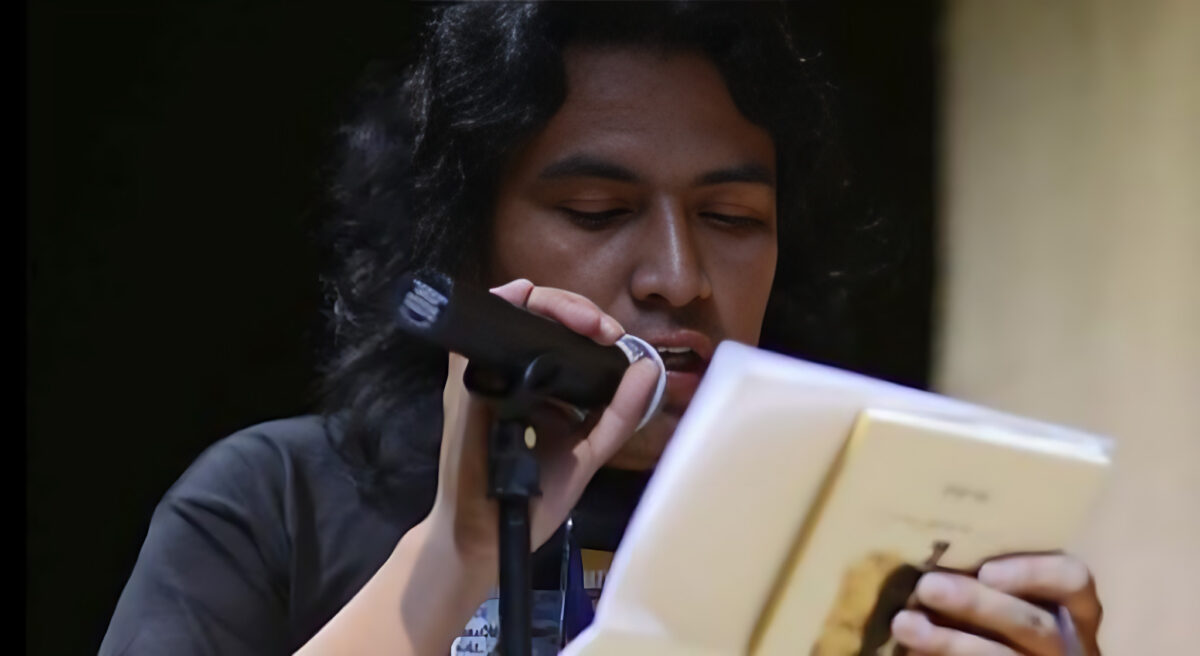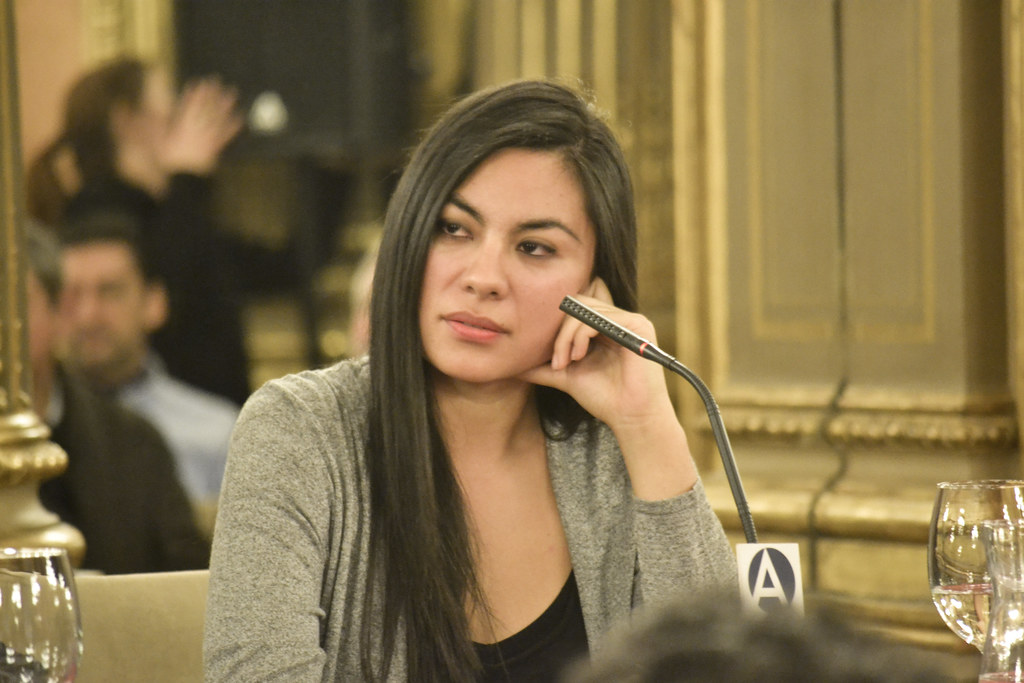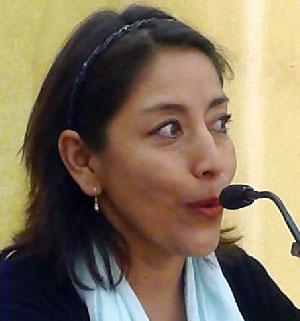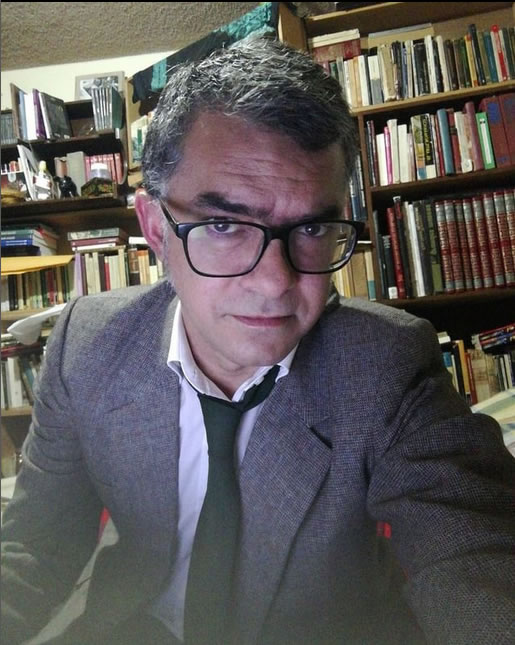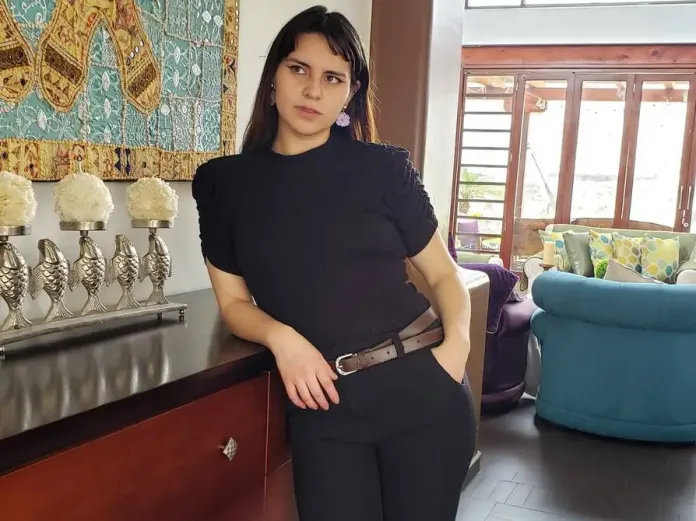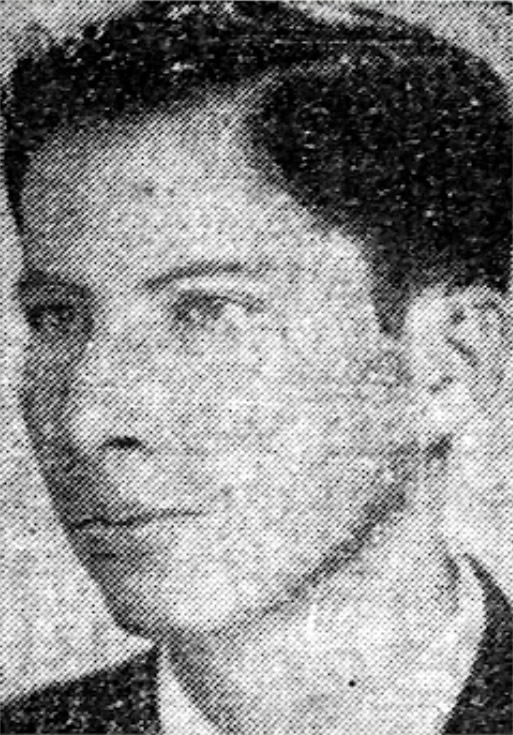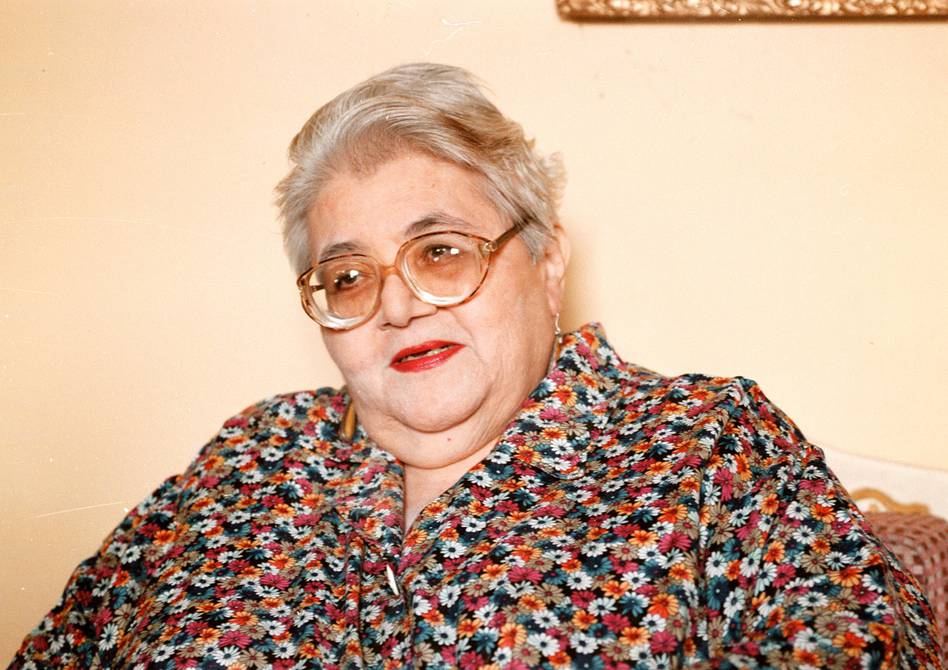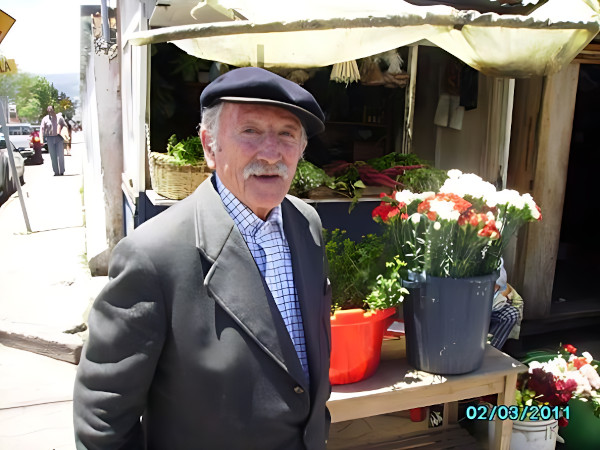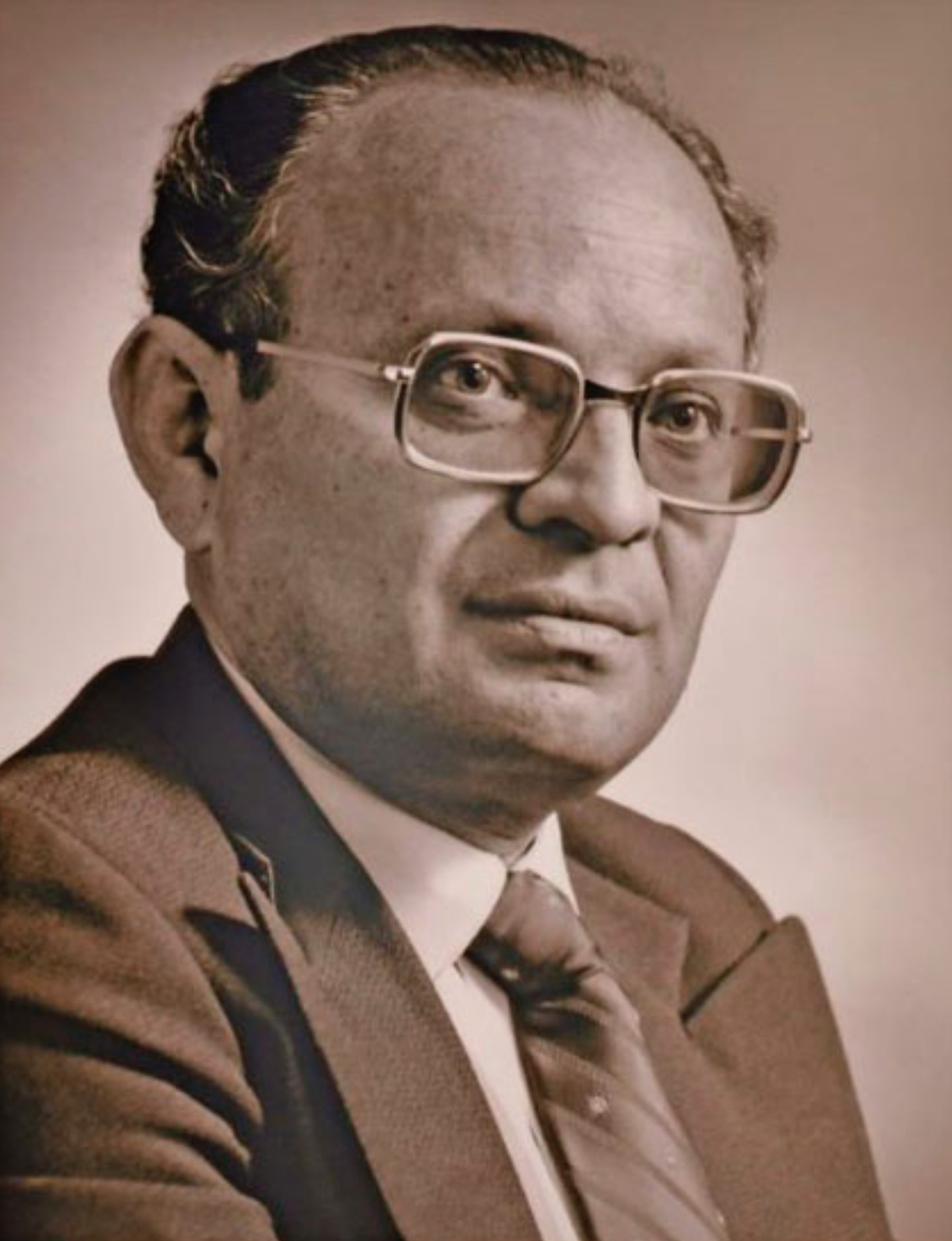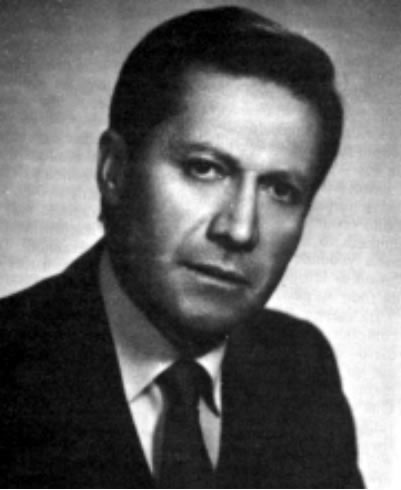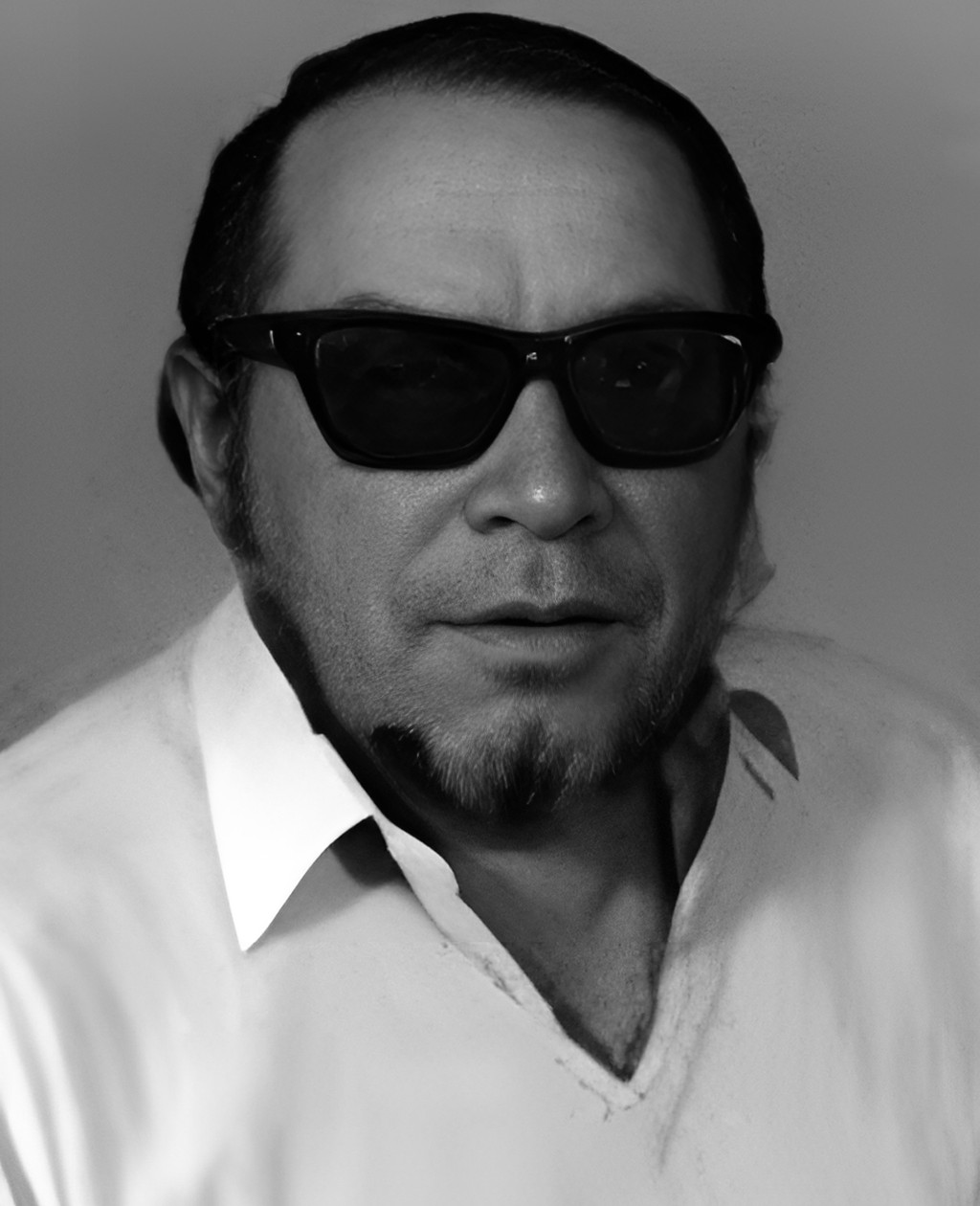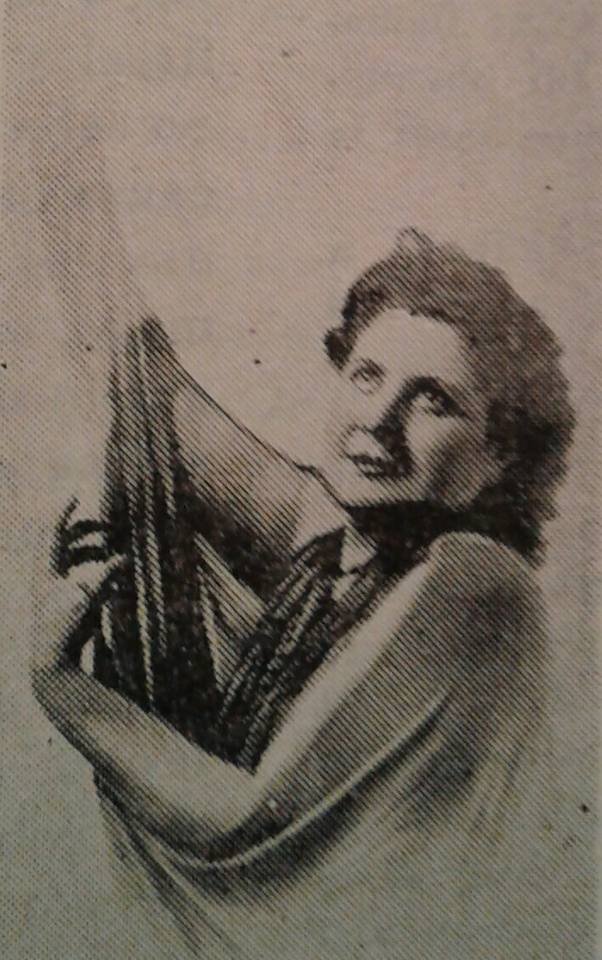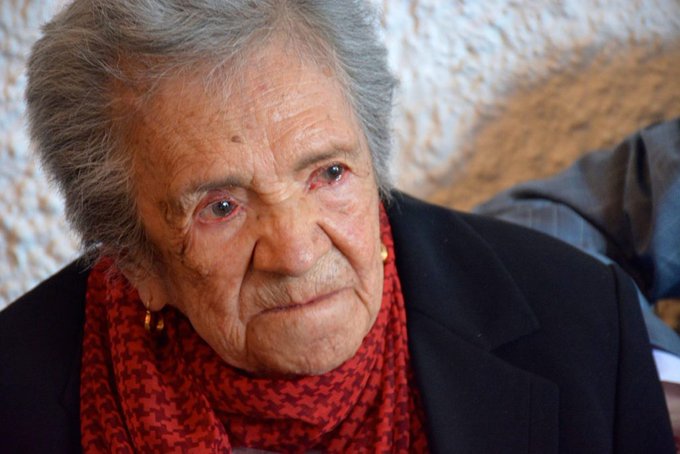Kelver Ax, pseudonym of Kleber Ajila Vacacela (Loja, 1985 – January 18, 2016) was an Ecuadorian poet and plastic artist. His books include: “CU4D3RN0 D3 4R3N4” (2012), Pop-Up (2014), and posthumously “Egagrópilas” (2016), which won the first Alejandro Carrión National Poetry Contest. His work has appeared in national and international magazines as well as anthologies. In 2019, his collected works appeared in a book, “Su sombra como un mapa: obra reunida de Kelver Ax.” He was invited to several fairs and festivals such as FIL QUITO (Quito, 2012), Latino Poets (New York, 2015), and VI Poetry Festival (Lima, 2015). He was also an award-winning plastic artist whose work has been featured in galleries and cultural centers. He was and continues to be one of the most distinctive, powerful, and original artists of his country and of his time. He died in 1985 at the age of 30.
Continue reading “Kelver Ax”Category: Poets
Carla Badillo Coronado
Carla Badillo Coronado (Quito, 1985) is an Ecuadorian poet, writer, journalist, translator, and travel writer based in Lisbon, Portugal. Her poetry books have won numerous prestigious awards. In 2010, she received the Moradalsur Award for her poetry collection “Belongings / Pertenencias”; in 2011, she won the César Dávila Andrade National Poetry Award for her book “Partituras Incompletas”; and in 2015, her poetry book “El color de la granada” won the Loewe Foundation International Poetry Prize for Young Creation. Her short novel “Abierta sigue la noche” received honorable mention at both the 2015 La Linares Prize and the 2017 Joaquín Gallegos Lara Prize.
Continue reading “Carla Badillo Coronado”Bernardita Maldonado
Bernardita Maldonado (Loja, 1969) is an Ecuadorian poet and writer. She has resided in Spain for over 25 years. She is the author of several poetry collections, including “Biografía de los pájaros” (2007) and “Con todos los soles lejanos” (2015). She has compiled the poetry of Héctor Manuel Carrión and written an introduction to it. Her native city of Loja honored her as “Woman of Letters 2015.” She is a member of the Ecuadorian House of Culture in Loja.
Continue reading “Bernardita Maldonado”Esteban Poblete Oña
Esteban Poblete Oña aka E. Plobete (Quito, 1979) is an Ecuadorian novelist, short story writer, and poet. In 2017 he published his debut novel “El ojo a través de la calavera.” In 2021 he published the novels “Tres cantos fúnebres para Ella” and “Tremolar” which are part of a tetralogy named “Tetralogía de Q.” Its next 2 books, “El celo de los malditos” and “El Dragón en la Flor,” are expected for release in 2022.
Continue reading “Esteban Poblete Oña”Andrea Rojas Vasquez
Andrea Rojas Vasquez (Loja, November 26, 1993) is an Ecuadorian poet. Her first poetry collection, “Matar a un conejo” [To Kill a Rabbit], was published in 2020. Her second book, “Llévame a casa, por favor” [Take Me Home, Please], was published in 2021. Her poetry entry, “Llámame Ismael” [Call Me Ishmael], was awarded the 2021 best poetry prize at the Ileana Espinel Cedeño International Poetry Festival held in Guayaquil.
Continue reading “Andrea Rojas Vasquez”David Ledesma Vásquez
David Ledesma Vásquez (Guayaquil, December 17, 1934 – March 30, 1961) was an Ecuadorian poet, writer, journalist, stage actor, and radio drama and radio soap opera actor. Although his work went unnoticed for several years after his death, it eventually acquired a cult following. He belonged to Club 7, a group of poets from the port city of Guayaquil in the 1950s. He committed suicide by hanging at the age of 27 in 1961. He left behind several unpublished works, including one ominously titled “La risa del ahorcado” [The Hanged Man’s Laugh]. Ileana Espinel Cedeño, a fellow Club 7 member, oversaw the posthumous publication of his poetry collection “Cuaderno de Orfeo” [Orfeo’s Notebook] in 1962.
Continue reading “David Ledesma Vásquez “Gastón Hidalgo Ortega
Gastón Hidalgo Ortega (Guayaquil, March 19, 1929 – January 5, 1973) was an Ecuadorian poet and member of Club 7, a poets’ group in Guayaquil in the 1950s. His poems can be found within the books “Club 7” (1954) and “33 poemas universitarios” (1955), both of which were compilations of poetry by various authors. His poems were also published in various magazines such as Cuadernos del Guayas, Ateneo Ecuatoriano, Letras del Ecuador, as well as the newspaper La Nacion from La Paz. During his lifetime he did not publish a collection of his own. In 1990, the House of Ecuadorian Culture published a posthumous collection of his poems, “Colección de poesía ecuatoriana: La rosa de papel, 25,” compiled by fellow Club 7 member Ileana Espinel. He worked as an editorial proofreader at the House of Ecuadorian Culture in Guayaquil. He died at age 44.
Continue reading “Gastón Hidalgo Ortega”Ileana Espinel Cedeño
Ileana Espinel Cedeño (Guayaquil, October 31, 1933 – Guayaquil, February 21, 2001) was an Ecuadorian poet, journalist, and editor, recognized as one of the most important voices in Ecuadorian literature. She was the only female member of the influential Club 7 poetry group and became the first woman to join the House of Ecuadorian Culture. Espinel was known for her lyrical and politically engaged poetry, publishing notable works like Piezas Líricas (1957) and Arpa Salobre (1966). Her work has been translated into several languages, and her legacy continues through the annual International Poetry Festival that bears her name in Guayaquil.
Continue reading “Ileana Espinel Cedeño”Guillermo Ríos Andrade
Guillermo Ríos Andrade (Ambato, November 10, 1924 – September 19, 2018) was an Ecuadorian poet and an active member of the House of Ecuadorian Culture, which published several of his poetry collections, including: “La aurora no es de todos” (1961), “La raíz del alba” (1972), and “Un eclipse total” (1974). At least two schools in Ecuador’s Pichincha province bear his name. The Mexican writer Alfonso Reyes, who the Argentine writer Jorge Luis Borges called “the greatest prose writer in the Spanish language,” was a great admirer of Ríos’ poetry and wrote articles about him.
Continue reading “Guillermo Ríos Andrade”César Dávila Torres
César Dávila Torres (Ibarra, 1932 – 2013) was an Ecuadorian poet, writer, lawyer, jurist, and university professor. He is cosidered one of the most notable writers of his generation. In 1955, he published his first poetry book, “Los hijos de la tierra.” In 1969, a collection of his poems was published in “Poesía junta” (a new edition was published in 2018 by the House of Ecuadorian Culture in Imbabura). In 2018, Dávila’s family gave the Aurelio Espinosa Polit Ecuadorian Library (BEAEP) around 7,500 books belonging to Dávila’s library, in addition to some of his personal belongings.
Continue reading “César Dávila Torres “Alfonso Barrera Valverde
Alfonso Barrera Valverde (Ambato, 1929 – September 6, 2013) was an Ecuadorian diplomat, poet, novelist, and non-fiction writer. Some of his notable works include his account of the Paquisha conflict, “Hombres de paz en lucha” (1982), the novel “Sancho Panza en América” (2005), and the children’s novel “El país de Manuelito” (1984). He served as ambassador to the Dominican Republic, Spain, Canada, Germany, and Argentina, and he also served as Ecuador’s Minister of Foreign Affairs.
Continue reading “Alfonso Barrera Valverde”Walter Franco Serrano
Walter Franco Serrano (Quito, 1932 – 2021) was a poet, novelist, and theater teacher. From 1954 to 1957, he cofounded the Quito Chamber Theater with professor Carlos Lowenberg, the Independent Theater with Francisco Tobar, and the puppet theater, casa de la Fantasia [Fantasy House]. He was a member of the Umbral Group, a literary group formed in Quito in 1952 by notable Ecuadorian writers of the time. He joined the Society of Friends of the Theater in 1955, where he taught oral expression. In 1967, he was Ecuador’s delegate to the First Latin America Theater Congress in Mexico. He lectured at the House of Ecuadorian Culture’s Theater Seminar between 1975-1976. His poetry collections include: “El instante innumerable” (1957), “El mar forastero” (1959), “Años ecuatoriales,” and “Cronica colombiana.” His novel “Un pueblo en los Andes” [A Town in the Andes] was a finalist for the 1971 Planeta award. His short story collections include: “Cinco mil dolares” and “Collazo 24.”
Continue reading “Walter Franco Serrano”Rubén Astudillo y Astudillo
Rubén Astudillo y Astudillo (El Valle, Cuenca, 1938 – January 16, 2003) was a poet, journalist, and diplomat. He began his writing career in Cuenca, where he created the Amanecer literary group and produced a magazine by the same name. In 1957, he published his first collection of poems, “Del crepúsculo,” followed by “Trébol sonámbulo” (1958), and “Desterrados” (1960). He then established the literary journal Syrma. In 1963, he published his best known poetry collection, “Canción de lobos,” with which he pioneered what he termed as poesía testimonialista [testimonialist poetry] in Ecuador. He served as a diplomat at the Ecuadorian embassies in Israel, Cyprus, Venezuela, Vietnam, and China.
Continue reading “Rubén Astudillo y Astudillo”Morayma Ofir Carvajal
Morayma Ofir Carvajal (Guaranda, Bolívar, January 28, 1915 – Chimborazo, February 25, 1951) was an Ecuadorian poet and educator. She worked as a teacher and rector at various schools in her hometown of Guaranda and later in Riobamba. In 1949, she was one of the founders of the Riobamba branch of the House of Ecuadorian Culture. Morayma Ofir was married to José Reyes for several years, until they were killed on February 25, 1951 by a bomb in their home in the city of Riobamba.
Continue reading “Morayma Ofir Carvajal”Inés Márquez Moreno
Inés Márquez Moreno (Cuenca, June 7, 1914 – August 18, 2017) was an Ecuadorian poet. Her first poetry collection, “Denuncia del sueño,” was published by the House of Ecuadorian Culture in Azuay in 1963. Her style is characterized by great simplicity and evocative force, and her subjects include love, land, friendship, and family. In 1994, the House of Ecuadorian Culture published her second collection of poems, “Camino de mediodía.” She was awarded the Fray Vicente Solano Medal by the city of Cuenca, which is given to the city’s most distinguished authors. She was a member of the Ibero-American Academy of Poetry in Cuenca since its inception. She continued to write into her 90s and died at the age of 101.
Continue reading “Inés Márquez Moreno”
